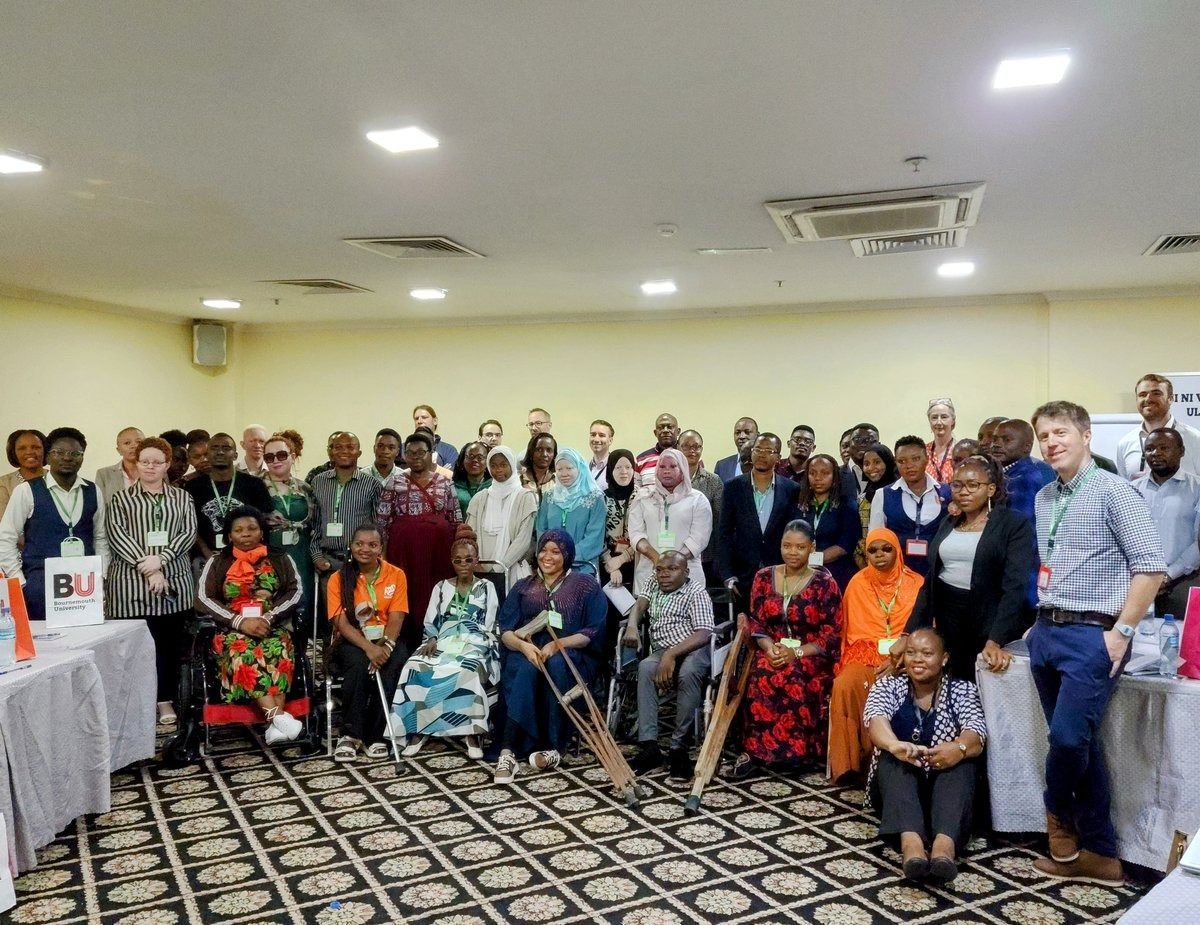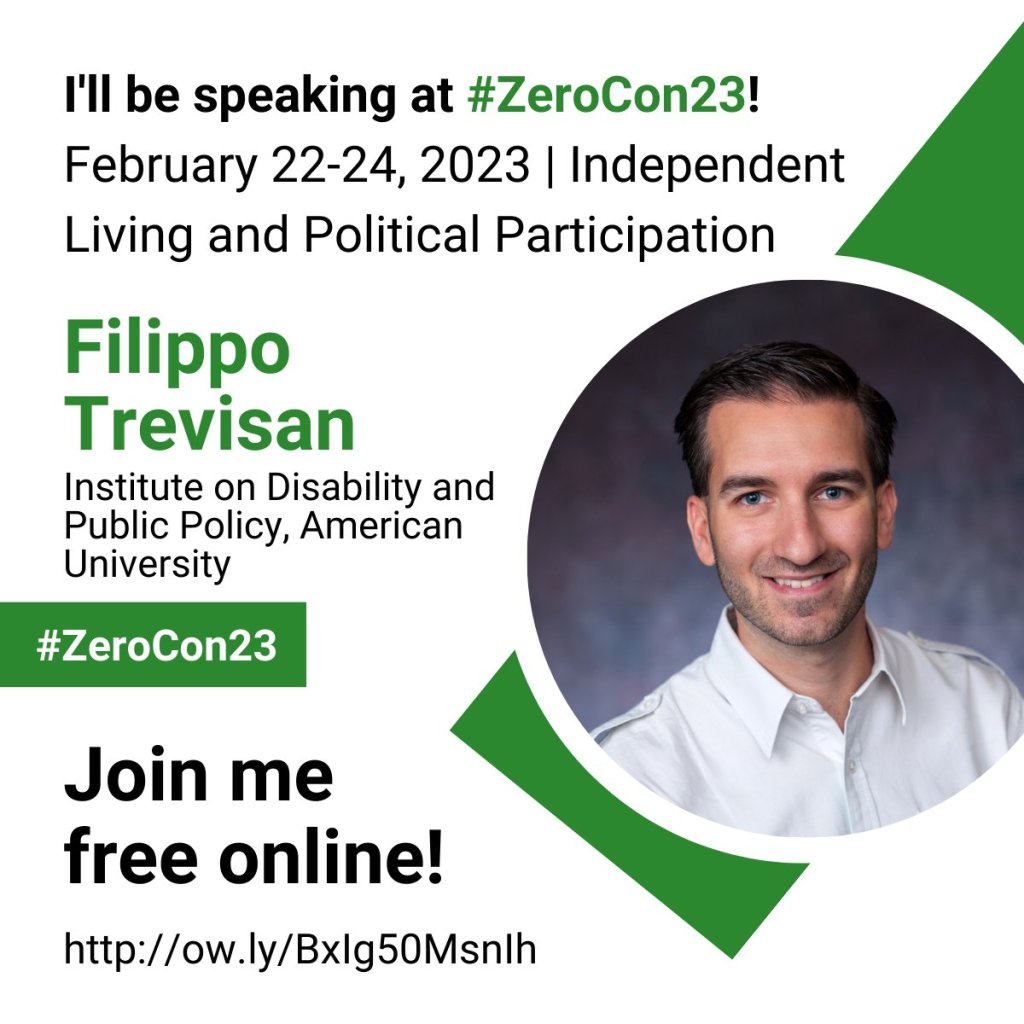The 2023 American Political Science Association’s conference starts tomorrow (August 31) – I’m honored to chair the Information Technology and Politics (ITP) Section and pleased to share a one-page overview of all ITP events at the conference, for ease of navigation (thanks Lauren Bander at American University for making this possible!). Just download the PDF below!
conferences
YDAR Festival of Disability Advocacy in Dar Es Salaam, Tanzania
In April, I was delighted to visit Dar Es Salaam, Tanzania for the Festival of Disability Advocacy organized by the Youth Disability Advocacy and Research (YDAR) network. This event brought together over 50 young disabled advocates, disability rights professionals, and academics from all over East Africa, the UK, and the U.S. for four days of knowledge exchange and campaign co-creation.

The Festival kicked-off a year-long project that will continue with a program of online workshops and trainings, and the development of grassroots disability rights campaigns led by young disabled leaders in East Africa mentored – both in person and remotely – by professionals and academics in the areas of disability rights, public policy, and media and communication. I’m proud to collaborate with an amazing team of colleagues from Bournemouth University (England) and ADD International Africa for this project, which is funded by the UK’s Arts and Humanities Research Council.
Awards Call: APSA Information Technology & Politics
Did you come across some stellar research in Information Technology and Politics published in 2022, or did you write some yourself? Consider nominating your work or the work of others for one of the 2023 APSA Information Technology & Politics Section Awards. Awards up for grabs include:
- Best Information Technology & Politics Book Award (for books first published in 2022)
- Best Article in Information Technology & Politics (must have appeared in a journal issue in 2022)
- Best ITP Conference Paper Award (for papers presented in the ITP section at APSA 2022)
- Best Student Conference Paper (for papers presented in the ITP section at APSA 2022)
- Best PhD Dissertation in Information Technology & Politics
- Best Public-Facing Scholarship in Information Technology and Politics
The deadline for submissions is April 1, 2023.
More information, including award committee members and contact details can be found here.
Invited talk on ‘datafied’ storytelling at #ZeroCon23

Last month, I gave an invited a talk at the Zero Conference 2023, one of the world’s largest gatherings about disability inclusion held at the United Nation’s offices in Vienna, Austria.
In my presentation, I discussed the pros and cons of ‘datafied’ stories as innovative narrative evidence in policy-making for disability inclusion, drawing on work I’ve done with Michael Vaughan and Ariadne Vromen for our forthcoming book on this topic. You can watch my presentation here. You can also watch all the different sessions on the Zero Project YouTube Channel (all the videos include captions and International Sign Language interpretation).
It was a honor and a privilege to connect with so many leaders in government, business, activism, academia, and international organizations who work tirelessly to build a more inclusive world. I’m grateful to the Zero Project and Essl Foundation‘s teams for this invitation.
#APSA2022 Information Tech & Politics Program
This year I’m honored to chair the Information Technology & Politics (ITP) program at the 2022 American Political Science Association‘s conference. Here’s an overview of all ITP events at the conference — hover over the image below to download a PDF copy and access direct hyperlinks to complete panel descriptions and paper titles in the online program. See you in Montréal!
HICSS55 Mini-track on culture, diversity, and inclusion
For the third consecutive year, I collaborated with my AU colleagues Nanette Levinson and Derrick Cogburn to plan a mini-track on Social Media, Culture, Identity and Inclusion at the 55th Hawai’i International Conference on System Sciences (HICSS). This year’s edition of the mini-track includes six papers covering a wide range of topics from online classrooms during the pandemic to Twitter algorithmic bias toward languages in countries as diverse as the U.S., India, and China.
HICSS55 will take place virtually between 3-7 January 2022 and registration is completely free – to register, click here.
Our mini-track will hold a free virtual paper session on Zoom on 4 January at 2:00pm EST (11:00am PT, 9:00am HST, 7:00pm GMT). To register for the mini-track session and receive the access link, click here.
CFP: APSA 2022 Information Tech & Politics
I’m delighted to share the Call for Proposals for the Information Technology and Politics (ITP) Section at the 2022 American Political Science Association’s annual conference. The conference is scheduled for September 2022 in Montréal, Canada, and proposals are due January 18, 2022. I’m honored to chair this year’s ITP program. Here’s a copy of the CFP and a link to submit. Feel free to email me with any questions you may have:
APSA Information Technology and Politics 2022 CFP
Deadline to submit proposals: January 18, 2022, 11:59pm Pacific Time
Submission website: https://connect.apsanet.org/apsa2022/division-calls/
Program Chair: Filippo Trevisan, American University, trevisan@american.edu
What will be the pandemic’s legacy on digital politics? The Information Technology & Politics (ITP) section invites paper, panel, and roundtable proposals relating to research on any forms of political activity revolving around, or shaped by, digital media and information technologies, broadly construed. We particularly encourage proposals connecting to the APSA 2022 theme, “Rethink, Restructure, and Reconnect: Towards a Post-Pandemic Political Science.” The COVID-19 pandemic has laid bare fundamental issues of (in)equality across different political systems. As we emerge from this crisis, information technologies and their uses will have profound implications for the politics of the future. Here, the stakes are especially high for marginalized and under-represented people. Thus, proposals that examine the role and experiences of groups that are traditionally discriminated against because of their race and ethnicity, gender identity, sexual orientation, disability, economic status, nationality, and their intersections are particularly important.
The ITP section welcomes proposals that tackle questions centered around, but by no means limited to, these issues:
- What opportunities and/or challenges to “democratize” digital politics have emerged during the pandemic?
- How do specific affordances of digital and social media facilitate or counter the circulation of ideas about race, sexuality, gender, disability, nationality, class, culture, and their intersections?
- What have political organizations such as campaigns, activist networks, and local and national governments learned from pivoting online and how might that affect their work long term?
- What is the role of information technology in spreading or countering misinformation and false information about health and related policy measures, politics, and elections across different political and cultural systems?
- How are calls for more regulation and changes in internet governance reshaping digital politics, both nationally and internationally?
- How are attitudes toward technology and its uses that emerged during the pandemic – including in relation to digital tracking and surveillance practices – going to affect future politics, both in democratic and authoritarian contexts?
- How can we innovate information technology and politics scholarship to make it more inclusive and representative of voices traditionally excluded from research?
The ITP section embraces a wide variety of methods and welcomes proposals informed by quantitative, qualitative, and mixed research designs, as well as innovative and interdisciplinary approaches. Ambitious proposals that blend theoretical significance with empirical and methodological detail are particularly encouraged.
More information about the APSA ITP section here
Follow the ITP Section on Twitter: @apsa_itp
Click here for the APSA 2022 Conference website
European Ideas Network Summer University 2019
I’m delighted to be in San Sebastian-Donostia in the beautiful Basque Country over the next couple of days to speak at the 2019 European Ideas Network‘s Summer University. I am grateful to EIN and the European People’s Party Group in the European Parliament for extending an invitation to meet and discuss with its members about the challenges and next steps in the fight against online disinformation and “fake news” in Europe. In my talk, I will explore the factors that created a ‘perfect storm’ for the growth of disinformation, share some of my latest work on how U.S. organizations and campaigns are trying to contrast it, and offer some ideas for a more proactive approach to this problem.
Disability, Technology and Human Rights Panel at ISA 2019
I look forward to taking part in a special panel on disability, technology and human rights at the 2019 International Studies Association’s Convention in Toronto, Canada on Saturday March 30, 1:45pm. The panel, which is titled “Accessible Global Governance: Technological and Policy Innovation in Support of Disability, Development, and Human Rights for All,” brings together a group of research leaders in disability and human rights to discuss emerging opportunities for disability advocacy on the global scale.
This panel is sponsored by American University’s Institute on Disability and Public Policy (IDPP).
In my presentation, I will discuss some of the highlights from the first global survey of Disabled People Organizations’ (DPO) leaders about accessibility and the potential role of technology at international conferences, meetings, and events.
Panel details: Saturday March 30, 1:45pm-3:30pm, Yorkville West, Sheraton Center, Toronto
Culture, Diversity and Inclusion Mini-Track at HICSS 52
This week I’m honored to co-chair the Culture, Diversity and Inclusion mini-track at the 52nd Hawaii International Conference on System Sciences (HICSS) together with my AU colleagues Derrick Cogburn and Nanette Levinson. The mini-track includes two exciting sessions at 8:00am and 10:00am on Friday January 11th with a total of five papers focusing on issues of disability, race, and age in digital and social media.
As part of this mini-track, I’m also going to present a paper I co-authored with Derrick Cogburn on “Technology and Grassroots Inclusion in Global Governance: A Survey Study of Disability Rights Advocates and Effective Participation.” The paper discusses the first global survey of disability rights advocates about their use of technology to participate in global governance processes including both U.N. and non-U.N. international meetings, conferences, and events, as well as the use of social media to engage with disability grassroots in their respective countries. To access a free copy of the paper, click here.
